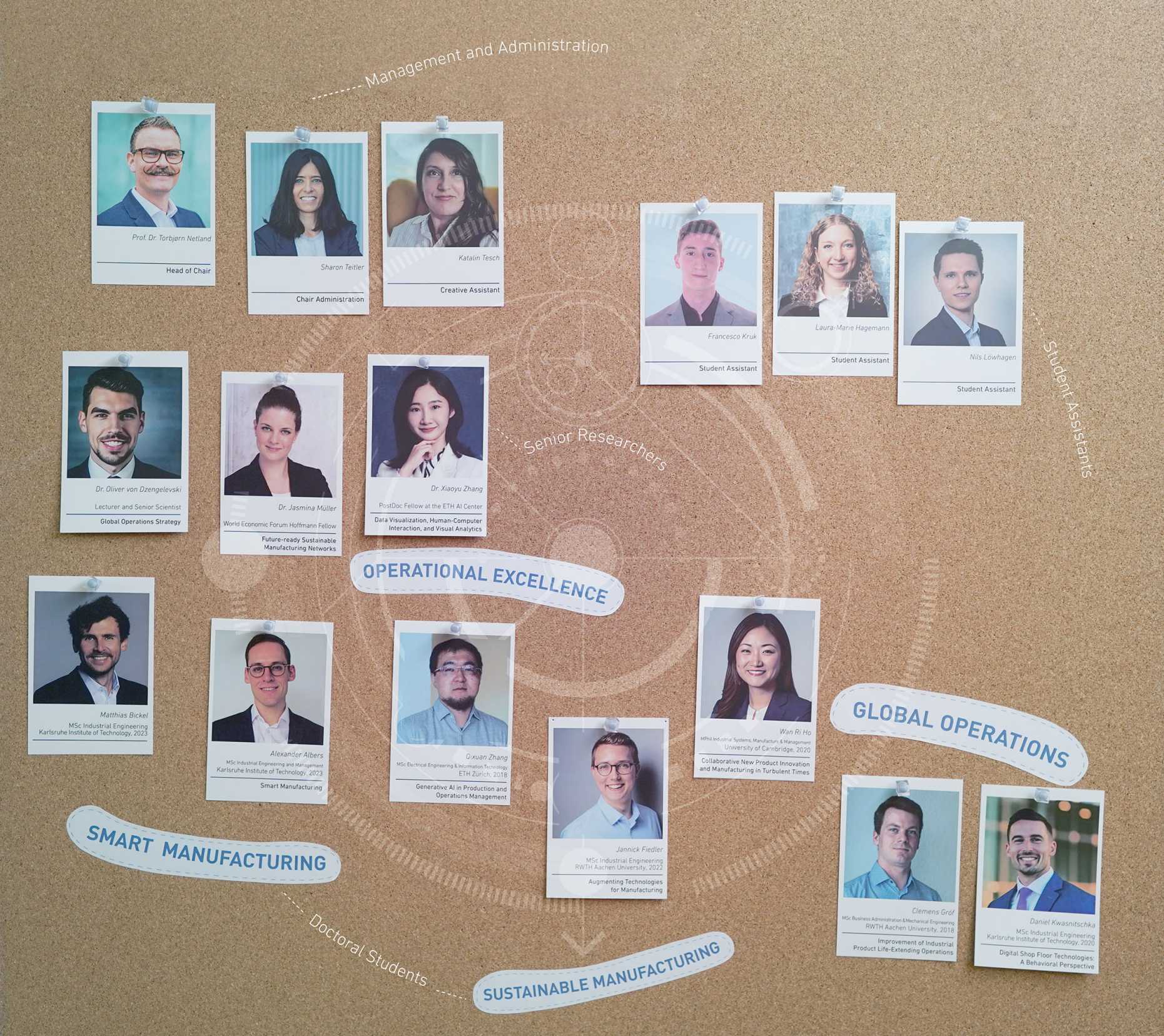Research
Production and Operations Management (POM) is at the heart of any business. It is concerned with the productivity of technology, people, and processes. POM covers the business processes that transform input into output and deliver products and services to customers. It is a generic research field and not only important in the manufacturing sector. Even pure finance firms, professional service firms, media organizations, not-for-profit organizations, and public service companies are dependent on their operational capabilities.

Our research concerns productivity improvement. The vast majority of our research is empirical and conducted in cooperation with firms. We approach productivity improvement from four different angles:
1. Operational excellence
2. Smart manufacturing
3. Global operations
4. Sustainable Manufacturing
Operational Excellence
Some of our best-known contributions to the field concern how global manufacturers develop and implement tailored production improvement programs in their global factory networks. Manufactures usually refer to this as “lean production” or “operational excellence.” We study how companies can improve operations by means of operational excellence programs, and the resulting effect on performance. Our research—published in leading operations management and business journals—continue to attract recognition and interest from academia ad multinational companies. It has received two Shingo Research Awards, which signify “a significant impact and contribution to advancing the body of knowledge regarding operational excellence,” and a high number of citations in academic journals.
Smart Manufacturing
We are researching pressing uses regarding digitization of manufacturing and the new opportunities that arise due to “Industry 4.0” technologies. Within this domain, we focus particularly on three topics: (1) Data-driven productivity improvement, (2) digital transformation strategies, and (3) the use of drones for improving in-door manufacturing activities. Data-driven productivity improvement covers data sharing in manufacturing (including, “open process innovation”) and the use of machine learning to improve manufacturing processes. In this domain, the Chair is supporting the World Economic Forum Global Future Council (GFC) on the Future of Advanced Manufacturing and Production.
Global Production
While a serious deployment of an operational excellence program can have a significant positive effect on performance, this effect can be marginalized or nullified when global manufactures change their manufacturing footprint. In consequence, many C-level managers are less concerned with operational excellence programs and more with network configuration issues. To understand the relative effects of production improvement programs, we study the effects of network configurations on performance. We are particularly interested in network typologies and where to locate manufacturing activities.
Behavioral Operations
No productivity improvement happen without people. Going deeper into our current field of expertise, we study the underlying behavioral mechanisms that lead to effective operational processes. In this field, we are, for example, exploring the current research frontier in the very rich literature on lean production. We are interested in the managerial behaviors that leads to successful program deployment and team decisions.
